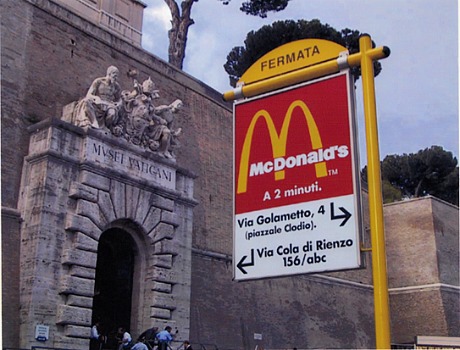Best Musto-ism: “Any picture that wins Best Picture is about Hollywood…Titanic is about Hollywood.”
Second best: “Extremely Loud and Glenn Close…or whatever it’s called.”
Best Musto-ism: “Any picture that wins Best Picture is about Hollywood…Titanic is about Hollywood.”
Second best: “Extremely Loud and Glenn Close…or whatever it’s called.”
Two days ago I told LexG that the pathetic, infantile, self-pitying sexual melancholia had to stop. He held himself in check yesterday but sometime this morning, while I was moaning and rolling around with fever, he went right back into it. So that’s it — LexG is gone and will never return. He’s an alcoholic, a hooligan and an infant. I feel sorry for him but he’s become a pestilence. He will not pollute this site again.
Fever tweet #1: The gay guy upstairs woke up at 6:45 am this morning and put on Alicia Keys‘ Empire State of Mind, and loud enough to share it. Not a straight-guy tune. Fever Tweet #2: “Straight guys, in fact, don’t play loudish music at 6:45 am period. Something in their genes. Go figure. ‘New YAWK…New YAW-HAW-HAWWWK!'” A guy wrote in and said that Empire State of Mind is “not a gay song.” Fever tweet #3: “But it’s from Sex and the City 2. In any case I choose to regard it as such.”
I woke up at 2:30 am with a funny polluted feeling. Then I couldn’t get up when the alarm rang at 6:45 am. Then I went out to the living toom and tried to write a couple things, and couln’t. I collapsed on the couch around 8 am, and I just woke up from a three-hour nap. It’s a real struggle to sit at the glass desk and tap this out, lemme tell ya. Another nap awaits. Liquids, liquids, liquids. Whenever this happens my muscles ache and ache, and then I start sweating it out after 36 hours or so, and then I’m fine.
The Descendants has won the WGA award for Best Adapted Screenplay, and Midnight in Paris has won for Best Original Screenplay. Some are saying this is how it’ll go down at the Oscars seven days hence. But The Artist wasn’t eligible for a WGA award so, as Sasha Stone forecasts, “if it sweeps major categories, it also wins Best Original Screenplay.” Best Original Screenplay for copying and pasting A Star Is Born and Singin’ in the Rain? REALLY?
As I’ve said time and again and again and again, the great thing about the Oscars is not (a) the Oscar award telecast or (b) Oscar nominees or (c) the winners or any other specific aspect, but the overall sweep and impact of awards season itself, and the fact that the Oscars long ago instigated the idea and practice of there being an awards season, and by setting themselves up as the climax of that, by default if not design.
The Oscars are the last big event, but what counts and what matters if that there’s a season (September to mid-February) devoted to exceptional, sometimes edgy or trying-to-be-edgy, above-average, quality-level movies. A cure and an antidote to the winter slumpy doldrums and the summer tentpole crap…glorious! For this alone I’ll be an Oscar devotee for the remainder of my days on this planet.
When did the concept of an awards season (beginning at Telluride/Venice/Toronto and lasting until February) actually kick in? When did the idea of Phase One and Phase Two award-season ads take hold? I called a couple of big-wheel advertising execs who didn’t call back, but my sense is that the acceptance of a five-and-a-half-month-long awards season has been with us since…some time in the late ’80s? The early ’90s? Obviously I need to kick this around but I don’t believe the idea goes back too far. Something to call around about tomorrow. Yes, I know — Monday is a holiday.
I bought a new Mac-friendly Canon scanner last night. I got out some old prints of Italy from 12 years ago, set the dpi resolution as high as it would go and gave them another run-through.



Friend: The WGA Awards are happening now. Maybe we should wait for that to be over before we do the other thing.
Hollywood Elsewhere: Okay whatever…but at this stage of the game with everyone really tired of the award season and The Artist having it all locked anyway, who gives that much of a shit, really?
Friend: Well, The Descendants has been picking up steam, which you should probably write about. It won the Eddie award last night, beating Hugo, and it won the USC Scripter award the other night, beating Moneyball. If it wins the WGA this afternoon that’ll be a three-for-three for The Descendants, and that shows some real heft…a bit. If there were two more weeks it could gain on The Artist, based on the momentum here.
Hollywood Elsewhere: Yeah, but it doesn’t have two more weeks. I wish it did and I wish an upset was in the cards. I wish Demian Bichir would win. I wish rain was beer. I wish we all had wings. But we don’t.
Hollywood Reporter columnist Scott Feinberg sent along this reponse: “Forget The Descendants. The one that’s really gaining on The Artist is The Help. The latter has what the former lacks: gravitas, social relevance, an ‘important’ message. A surprisingly high number of Academy members have told me that it’s their pick. If it wins, though, it would mean that we need to throw out all the history/stat books, because the last time a film won without a directing nom was 22 years ago (Driving Miss Daisy), without a screenwriting nom was 14 years ago (Titanic), and without a film editing nom was 31 years ago (Ordinary People). The last time one won without all three, as would be the case with The Help, was 79 years ago (Grand Hotel). In other words…at the end of the day it will still be The Artist.”
“When’s the last time you saw a public service announcement by a singer or an actor… to say to the American public, ‘You know? You don’t want to be like Whitney Houston,'” Bill O’Reilly asked Matt Lauer. “‘Don’t be like Elvis. Don’t be like Janis Joplin.’ When’s the last time you saw that? [The people who might say this] don’t exist. You know what we in the media do, Lauer? We wink-wink it. We Snoop Dog it. We Willie Nelson it.
“Name one commentator besides myself saying, ‘Hey, Whitney? If you don’t knock it off you’re going to be in the ground.’ It’s never been that.
“I don’t believe that anyone is a slave to addiction. I do believe it’s a disease [but] you have free will and you can get through the disease, as millions of people have. You don’t have free will when you get lung cancer. My view is that they are self-destructive people, and that society doesn’t grapple with them.”
I’m respectfully taking issue with David Carr‘s new glasses. They don’t compete with his features and thereby interfere to some extent with his manner and personality; they almost overwhelm them. Minimal wire frames required.
CNN’s embed codes are infuriating. I’ve re-scaled the dimensions perfectly to fit HE’s template (460 pixels wide x 413 pixels high) and still they come out smaller than they should.
Why are the Academy’s Oscar nominees and winners criticized so frequently for being traditionally staid and “safe”? Why has the general Academy mentality proven so averse or oblivious to the contours and leanings of the present? We all know the answer. It’s because the Academy is made up of mostly older white guys who aren’t paying close attention, largely because they don’t choose to because they’re looking to maintain their relationships with other older white guys, and who are always looking for a job so why shake things up or otherwise rock the boat?
But all along I’ve been buying the line that the Academy is expanding its roster and getting younger and more inclusive. More members in their 30s and 40s, right? Jonah Hill, Tina Fey, David Gordon Green, Kristen Wiig, Judd Apatow, Seth Rogen, etc.? Well, that’s mostly Academy spin, it turns out.
Because a just-published L.A.Times survey (2.19) led by John Horn, Nicole Sperling and Doug Smith reports that Oscar voters are nearly 94% Caucasian and 77% male, have a median age of 62.
And — here’s the kicker — “people younger than 50 constitute just 14% of the membership.”
“The Times found that some of the academy’s 15 branches are almost exclusively white and male. Caucasians currently make up 90% or more of every academy branch except actors, whose roster is 88% white. The academy’s executive branch is 98% white, as is its writers branch. Blacks are about 2% of the academy, and Latinos are less than 2%.”
Your typical Academy member, in short — the person whose whims are constantly being studied and divined by Sasha Stone, Scott Feinberg, “Safe Dave” Karger, Tom O’Neil, Kris Tapley, Stu Van Airsdale and Pete Hammond — is a graying (or dyed-haired) guy with a paunch and a neck waddle and liver spots on his hands who doesn’t work out as much as he used to, and who listened to Frankie Avalon and the Turtles and Paul Revere and the Raiders in high school, and who tends to watch comfort movies when he’s home instead of Academy screeners, and who sometimes nods out at screenings.
“Men compose more than 90% of five branches, including cinematography and visual effects,” the report says. “Of the academy’s 43-member board of governors, six are women; public relations executive Cheryl Boone Isaacs is the sole person of color.
“The full roster of the Academy of Motion Pictures Arts and Sciences has never been published. Times reporters confirmed the identities of more than 5,100 Oscar voters — more than 89% of all active voting members.
“‘We absolutely recognize that we need to do a better job,’ said writer-director Phil Alden Robinson, a longtime academy governor. But “we start off with one hand tied behind our back…if the industry as a whole is not doing a great job in opening up its ranks, it’s very hard for us to diversify our membership.”
Frank Pierson, a former academy president who won an Oscar for original screenplay for Dog Day Afternoon in 1976, said merit is the primary criterion for membership.
“I don’t see any reason why the academy should represent the entire American population. That’s what the People’s Choice Awards are for. We represent the professional filmmakers, and if that doesn’t reflect the general population, so be it.”
“Some academy members, though, believe the organization should do more to reflect the demographics of the nation. Denzel Washington, who won the lead actor award for 2001’s Training Day,” said the academy needs to ‘open it up’ and ‘balance’ its membership.
“‘If the country is 12% black, make the academy 12% black,’ Washington said. ‘If the nation is 15% Hispanic, make the academy 15% Hispanic. Why not?'”
I don’t quite buy Washington’s calculus. I think you have to demographically survey the ranks of filmmakers in the indie community and all over and determine what percentage in this group — people who are actually trying to get features or shorts made by hook or crook — are black and Latino and whatnot, and then you need to adjust the Academy’s membership accordingly.
You can’t go by the general population. There are millions upon millions of lazy, fast-food-eating couch potatoes of every ethnic stripe out there, and you can’t expect their ranks to be reflected in an organization made up of determined achievers.
You are, at times, an inspired writer and obviously, within the Hollywood internet realm, a famous (or infamous) personality, your fame reaching all the way to London (evidenced by that July 20011 article by the Guardian‘s Tim Adams). But last night, again, you degraded Hollywood Elsewhere by taking a dump on the carpet with your pathetic, infantile, self-pitying sexual melancholia.
Imagine having a party at your home and an exceptionally bright and interesting guest — a friend, in fact — comes over and gets drunk and moons the guests and vomits all over the floor and then leaves. And then you have another party and he comes by and does the same thing again. And again. And again. Honestly, how would you feel? And how would you respond after the eleventh or twentieth vomit-splat?
In the early 1940s Jackson Pollock urinated into the fireplace at a party thrown by Peggy Guggenheim. Yes, she forgave him and supported him after that, but you are not Jackson Pollock and I am not Peggy fucking Guggenheim. And I am not going to buy you the services of a prostitute. I tried to instigate a reader donation fund to give you a weekend at Heidi Fleiss‘s Space Alien cathouse in Nevada, but no one bit and that’s the end of it.
18 months ago I wrote that “the coarseness [and] the self-pity…have to be turned down. Way down. I’m not trying to be Ms. Manners. But there finally has to be an emphasis on perception and love and passion and the glories of good writing. There has to be an emphasis on letting in the light rather than damning the darkness.”
Do this one more time and I will ban you from Hollywood Elsewhere for life. That means you can sign back in under another name and I will erase you again. And again. As long as you want to play this game, I will block you and block you and block you. This is really, really it on my end.
Stop drinking, for Chrissake! PLEASE! I have recently and I feel great. And stop eating dairy and breads and cheese dogs and Fettucine Alfredo and cheeseburgers and ice cream and Danish pretzels. “Eat food. Not too much. Mostly plants.” And lift weights and get some running or walking in every day. And show some balls and write your own column, which I said I’d let you have on the site. And then save some money and fly to Prague for a hair-plug operation. And oh, yeah…STOP DRINKING.
And stop wearing gray cross-training lace-up shoes. When we met at Mel’s Drive-In that one time I gulped when I saw you in those effing things. I knew then and there that you were (a) having problems in life and (b) would continue to have problems in life. Because no one with the slightest sense of style and/or self-respect wears gray cross-training shoes.